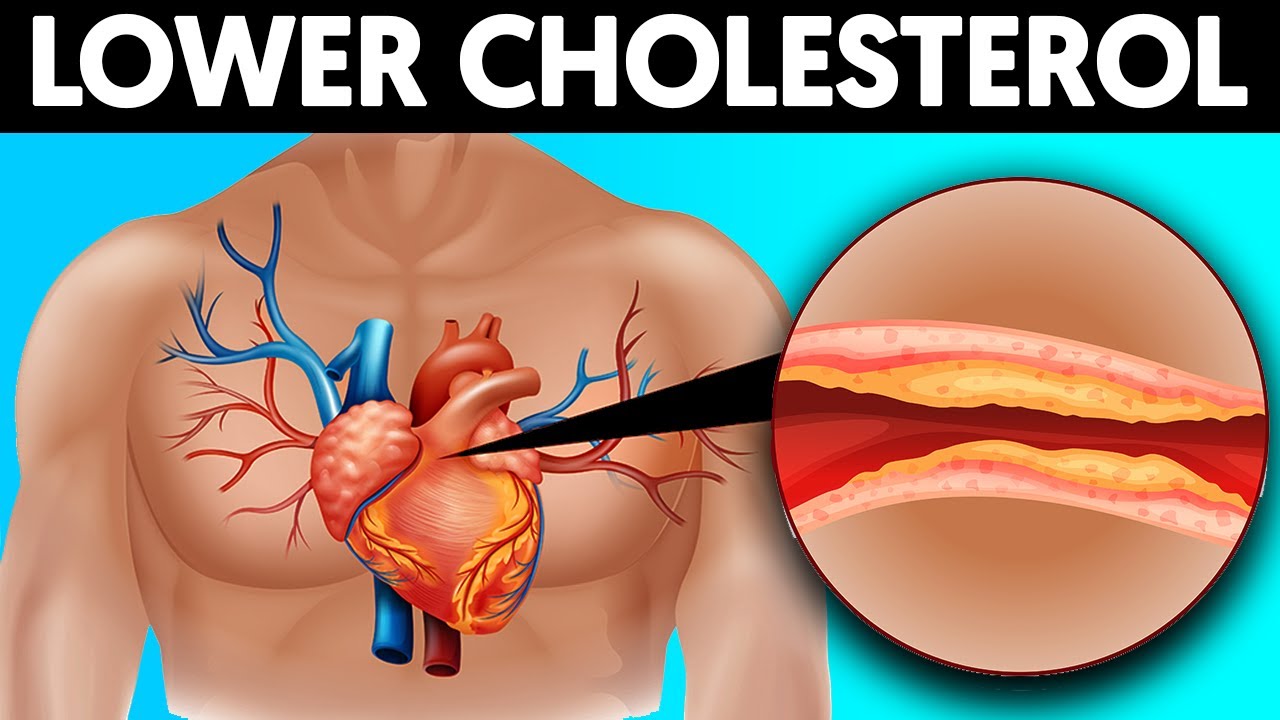This is how to effectively lower your cholesterol
While cholesterol is most known for its bad effects, it actually has many important functions.
For starters, it helps maintain the flexibility of cell walls and is vital in the production of several hormones.
Nonetheless, like anything in the body, too much cholesterol creates health issues.
And as we all know, high cholesterol levels increase the risk of heart diseases and heart attacks.
There are medications, however, to help improve your cholesterol.
But if you’re looking for a healthy and natural way, then you must make some changes in your lifestyle.
For instance, you should avoid trans fats, as they raise your bad (LDL) cholesterol levels, which we will be examining deeply next, so make sure to stick with us.
1. Go for monounsaturated fats
A diet high in monounsaturated fats is found to reduce LDL cholesterol, while also protecting higher levels of HDL.
Furthermore, according to studies, monounsaturated fats may also reduce the oxidation of lipoproteins, minimizing clogged arteries.
Some of the good sources of monounsaturated fats include canola oil, avocados, olives, and olive oil, and tree nuts like almonds, hazelnuts, and cashews.
2. Focus on polyunsaturated fats, specifically Omega-3s
Based on research, polyunsaturated fats decrease bad cholesterol levels, which in turn, reduces the risk of heart disease.
Polyunsaturated fats can also lessen the risk of metabolic syndrome and type 2 diabetes.
But as much as possible, go for Omega-3 fatty acids as they are the heart-healthy type of polyunsaturated fats.
These healthy fatty acids are usually found in seafood and fish oil supplements.
3. Avoid trans fats
On food labels, trans fats are sometimes labeled as partially hydrogenated vegetable oil.
It’s often used in margarine and store-bought cakes, cookies, and crackers.
Trans fats raise total cholesterol and LDL levels, so it’s best to avoid them.
If not then make sure to choose foods with trans fat that has less than 0.5 grams per serving.
4. Consume soluble fiber
Soluble fiber can reduce the absorption of cholesterol into your bloodstream.
It can also nourish healthy probiotic gut bacteria and remove cholesterol.
Some of the best sources of soluble fiber include whole grains, kidney beans, peas, apples, and pears.
5. Exercise
You’d never go wrong with exercise, especially when it comes to heart health.
For starters, it helps improve physical fitness and helps combat obesity.
But more importantly, exercise reduces bad LDL and increases beneficial HDL.
Just remember that the longer and more intense your exercise is, the more benefits you’ll get.
6. Lose weight
Dieting impacts the way your body absorbs and creates cholesterol.
Carrying even a few extra pounds is enough to contribute to high cholesterol.
So, instead of drinking sugary beverages, switch to water.
Also, apart from making changes in your diet, look for ways to add more physical activities into your daily routine.
7. Drink moderately
Alcohol, when taken moderately, can boost HDL cholesterol levels.
However, the benefits aren’t strong enough to recommend it to those who don’t normally drink.
But if you like drinking alcohol, then keep it to a moderate level.
Too much of it can result in serious health issues such as high blood pressure and strokes.
Do you have something to say about this video? Share them below.



![[ID: Hx_A0iLhdr8] Youtube Automatic](https://bizimtube.com/wp-content/uploads/2021/03/id-hxa0ilhdr8-youtube-automatic-236x133.jpg)
![[ID: lp7w0UmpuIs] Youtube Automatic](https://bizimtube.com/wp-content/uploads/2021/03/id-lp7w0umpuis-youtube-automatic-236x133.jpg)
![[ID: s2-7T1TH-lY] Youtube Automatic](https://bizimtube.com/wp-content/uploads/2021/03/id-s2-7t1th-ly-youtube-automatic-236x133.jpg)
![[ID: b_lakC9M4UQ] Youtube Automatic](https://bizimtube.com/wp-content/uploads/2021/03/id-blakc9m4uq-youtube-automatic-236x133.jpg)
![[ID: r44yl6nPONs] Youtube Automatic](https://bizimtube.com/wp-content/uploads/2021/03/id-r44yl6npons-youtube-automatic-236x133.jpg)
![[ID: pAwto1YQjA8] Youtube Automatic](https://bizimtube.com/wp-content/uploads/2021/03/id-pawto1yqja8-youtube-automatic-236x133.jpg)
![[ID: XETG8azHiv4] Youtube Automatic](https://bizimtube.com/wp-content/uploads/2021/03/id-xetg8azhiv4-youtube-automatic-236x133.jpg)
![[ID: f3G_-S_2HUk] Youtube Automatic](https://bizimtube.com/wp-content/uploads/2021/03/id-f3g-s2huk-youtube-automatic-236x133.jpg)
![[ID: G8oWns54snA] Youtube Automatic](https://bizimtube.com/wp-content/uploads/2021/03/id-g8owns54sna-youtube-automatic-236x133.jpg)
![[ID: s0lIFXhu6aw] Youtube Automatic](https://bizimtube.com/wp-content/uploads/2021/03/id-s0lifxhu6aw-youtube-automatic-236x133.jpg)
![[ID: 4UTd2Ev8eYg] Youtube Automatic](https://bizimtube.com/wp-content/uploads/2021/03/id-4utd2ev8eyg-youtube-automatic-236x133.jpg)
![[ID: RKBGBjVJBxQ] Youtube Automatic](https://bizimtube.com/wp-content/uploads/2021/03/id-rkbgbjvjbxq-youtube-automatic-236x133.jpg)